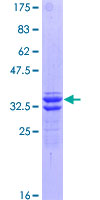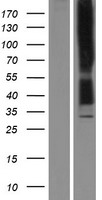order histories, retained contact details for faster checkout, review submissions, and special promotions.
Forgot password?
order histories, retained contact details for faster checkout, review submissions, and special promotions.
Locations
Orders Processing,
Shipping & Receiving,
Warehouse
2 Shaker Rd Suites
B001/B101
Shirley, MA 01464
Production Lab
Floor 6, Suite 620
20700 44th Avenue W
Lynnwood, WA 98036
Telephone Numbers
Tel: +1 (206) 374-1102
Fax: +1 (206) 577-4565
Contact Us
Additional Contact Details
order histories, retained contact details for faster checkout, review submissions, and special promotions.
Forgot password?
order histories, retained contact details for faster checkout, review submissions, and special promotions.
OPRK1 / Kappa Opioid Receptor
opioid receptor, kappa 1
G-protein coupled opioid receptor that functions as receptor for endogenous alpha-neoendorphins and dynorphins, but has low affinity for beta-endorphins. Also functions as receptor for various synthetic opioids and for the psychoactive diterpene salvinorin A. Ligand binding causes a conformation change that triggers signaling via guanine nucleotide-binding proteins (G proteins) and modulates the activity of down-stream effectors, such as adenylate cyclase. Signaling leads to the inhibition of adenylate cyclase activity. Inhibits neurotransmitter release by reducing calcium ion currents and increasing potassium ion conductance. Plays a role in the perception of pain. Plays a role in mediating reduced physical activity upon treatment with synthetic opioids. Plays a role in the regulation of salivation in response to synthetic opioids. May play a role in arousal and regulation of autonomic and neuroendocrine functions.
| Gene Name: | opioid receptor, kappa 1 |
| Family/Subfamily: | GPCR , Opioid |
| Synonyms: | OPRK1, Kappa-type opioid receptor, Opiate receptor, kappa-1, K-OR-1, KOR, Opioid receptor, kappa 1, OPRK, Ork1, Kappa opioid receptor, KOR-1, Opioid receptor kappa |
| Target Sequences: | NM_000912 NP_000903.2 P41145 |
Publications (2)



If you do not find the reagent or information you require, please contact Customer.Support@LSBio.com to inquire about additional products in development.









